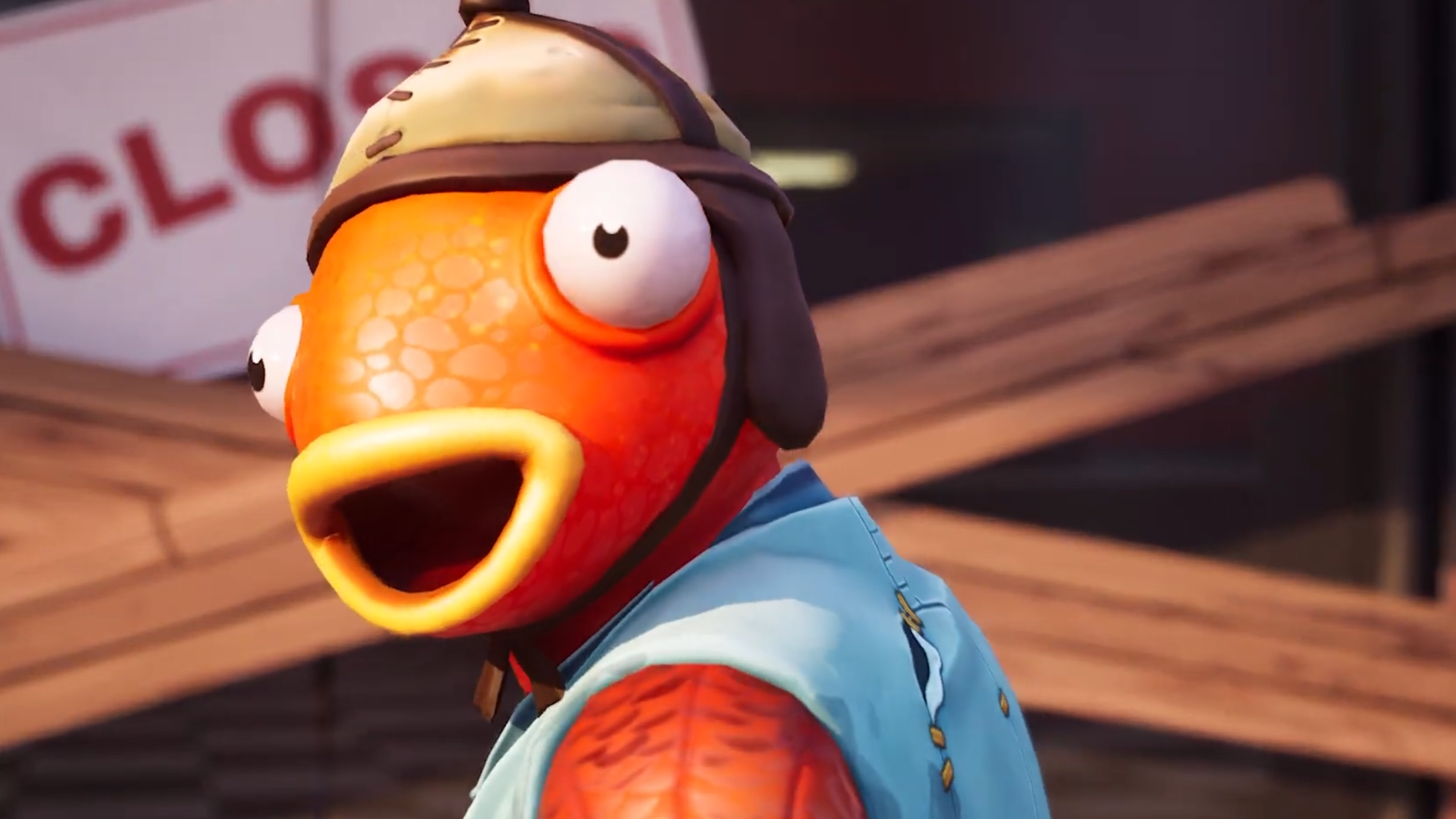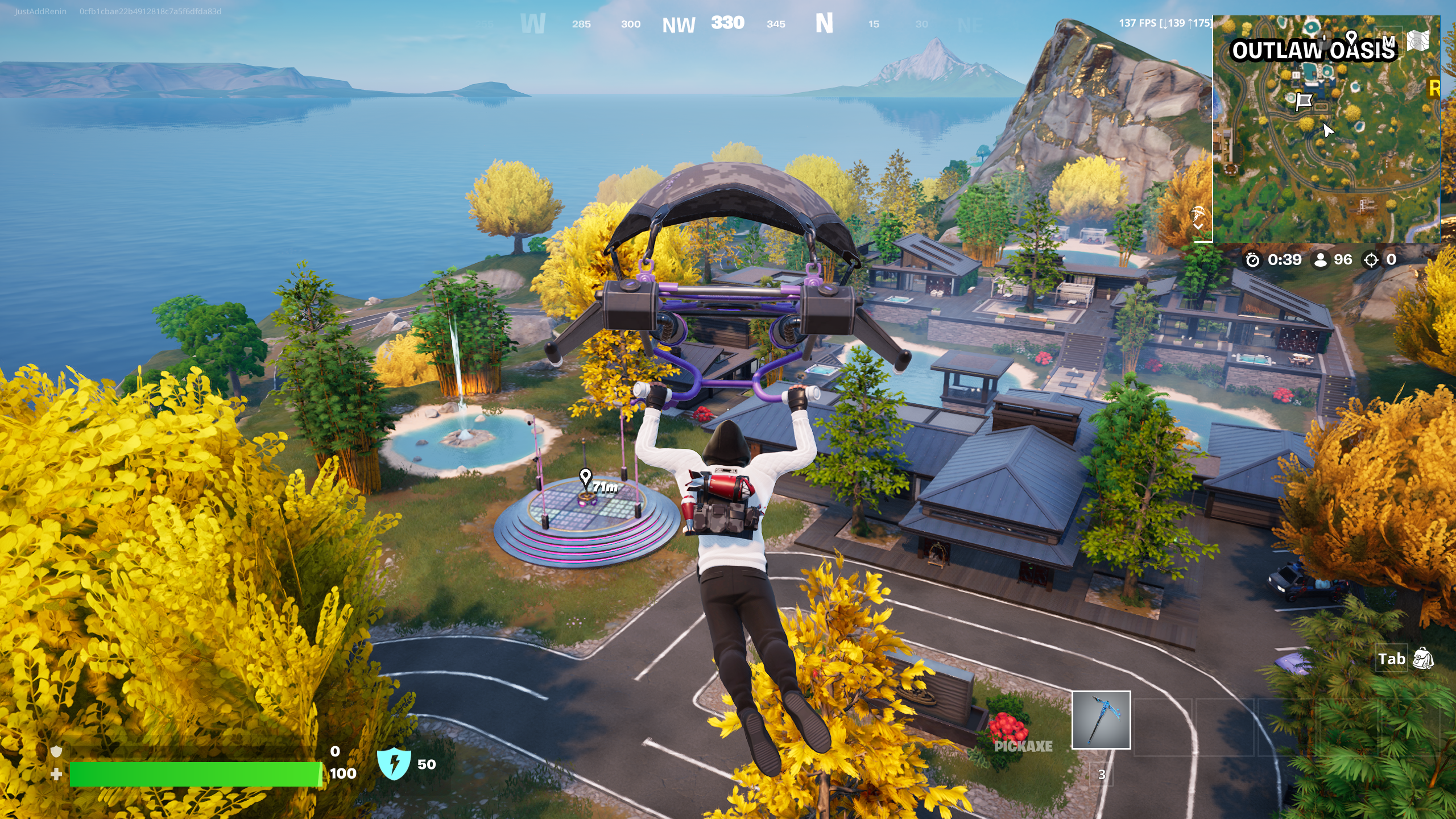Epic sues Fortnite botters who filled their own maps with clankers and made off with tens of thousands of dollars
Want the money back and a lifetime ban on the pair ever creating accounts again.

Keep up to date with the most important stories and the best deals, as picked by the PC Gamer team.
You are now subscribed
Your newsletter sign-up was successful
Want to add more newsletters?

Every Friday
GamesRadar+
Your weekly update on everything you could ever want to know about the games you already love, games we know you're going to love in the near future, and tales from the communities that surround them.

Every Thursday
GTA 6 O'clock
Our special GTA 6 newsletter, with breaking news, insider info, and rumor analysis from the award-winning GTA 6 O'clock experts.

Every Friday
Knowledge
From the creators of Edge: A weekly videogame industry newsletter with analysis from expert writers, guidance from professionals, and insight into what's on the horizon.

Every Thursday
The Setup
Hardware nerds unite, sign up to our free tech newsletter for a weekly digest of the hottest new tech, the latest gadgets on the test bench, and much more.

Every Wednesday
Switch 2 Spotlight
Sign up to our new Switch 2 newsletter, where we bring you the latest talking points on Nintendo's new console each week, bring you up to date on the news, and recommend what games to play.

Every Saturday
The Watchlist
Subscribe for a weekly digest of the movie and TV news that matters, direct to your inbox. From first-look trailers, interviews, reviews and explainers, we've got you covered.

Once a month
SFX
Get sneak previews, exclusive competitions and details of special events each month!
The sheer scale of Fortnite and the money involved has meant Epic Games has to deal with a sizable contingent of ne'er-do-wells. Amusingly enough, in some cases it has pursued a strategy of crushing the cheaters in court and then making them apologise, like some sort of giant corporate stepmother. But when things start to get into the realm of cheating the system itself, and illicitly siphoning off money from the creator program, it turns out Epic's lawyers play a whole other ballgame.
Fortnite has for many years hosted user-created experiences called islands, provides a suite of tools to make their creation as easy as possible, and then pays out money to the creators of the most popular maps. There are various metrics to determine payouts: session length, player count, and whether players go on to buy anything. This isn't chump change either: Epic says it pays out millions of dollars every year to community creators.
So two miscreants took a look at that situation, and came up with a plan. Build some experiences, juice the player numbers through the roof with bots, and then sit back and profit. That's what Epic alleges in a new filing in Michigan against Idris Nahdi and Ayob Nasser (first spotted by Polygon), who it says created over 20,000 bots to 'play' their own creations between December 2024 and February 2025. Epic says the maps created by the pair did have real players, but it believes between 88% and 99% of the engagement in these maps was faked.
"Defendants programmed the bot accounts to engage with Defendants’ own Fortnite Islands by using a cloud gaming service that allows users to play video games, like Fortnite, remotely," reads the filing. "Defendants worked together to create multiple Islands in an attempt to disguise their scheme by spreading the fake engagement across multiple developer accounts and Islands."
Epic says the pair made tens of thousands of dollars through the practice but, once Epic noticed something funky and stopped payments, the bots all suddenly disappeared. Epic at this point told the pair to stop playing Fortnite and "destroy all copies" of the game in their possession: which they didn't, and is one of the reasons things have reached this stage.

The lawyers now say Epic wants to recuperate the money paid out for the alleged con, and wants to protect the integrity of the creator program. "Developers trust that the time spent creating Islands will be rewarded in accordance with the Engagement Program Payout Terms, and based on how real players engage with the Islands. Defendants’ conduct undermines Epic’s relationship with developers, however, depriving legitimate developers of the full share of funds they otherwise would have received and eroding the trust Epic has built with them."
Epic further asks that the court bar both players from creating Epic accounts in future, and stops them from downloading or playing Fortnite. It even asks that these measures apply to the defendants' "heirs [and] successors." That feels incredibly unlikely, though it is somewhat funny to think about some poor kid who can't play Fortnite with his mates because daddy ran a botting ring and got caught.
Keep up to date with the most important stories and the best deals, as picked by the PC Gamer team.

1. RTX 5060 laptop | Lenovo LOQ 15 | $810 (save $490)
2. 1 TB SSD | Lexar NM790 | $66 (save $24)
3. Gaming chair | Corsair TC100 Relaxed | $160 (save $110)
4. 4K OLED monitor | MSI MAG | $750 (save $150)
5. GPU | ASRock RX 9070 XT | $640
👉Check out our full list of deals👈

Rich is a games journalist with 15 years' experience, beginning his career on Edge magazine before working for a wide range of outlets, including Ars Technica, Eurogamer, GamesRadar+, Gamespot, the Guardian, IGN, the New Statesman, Polygon, and Vice. He was the editor of Kotaku UK, the UK arm of Kotaku, for three years before joining PC Gamer. He is the author of a Brief History of Video Games, a full history of the medium, which the Midwest Book Review described as "[a] must-read for serious minded game historians and curious video game connoisseurs alike."
You must confirm your public display name before commenting
Please logout and then login again, you will then be prompted to enter your display name.

